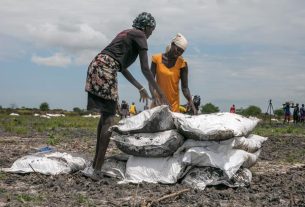Nigeria is facing a complex and deepening humanitarian crisis, with 3.7 million people internally displaced due to a combination of armed conflict, climate-related disasters, and socio-political instability. The crisis is most acute in the northeastern states of Borno, Adamawa, and Yobe, where violence from non-state armed groups and recurrent flooding have devastated communities and disrupted livelihoods.
In a recent discussion, Arjun Jain, the UN Refugee Agency’s Representative in Nigeria, highlighted the multifaceted nature of displacement in the country. He emphasized how religion and geography influence public perception and response, often shaping the level of empathy and support displaced populations receive. Jain also noted that federal and state governments are working to address the crisis, but their efforts are constrained by shrinking humanitarian budgets and rising inflation.
Displacement has significantly worsened food insecurity, with millions of Nigerians unable to access sufficient nutrition. The 2025 lean season is expected to affect up to 33 million people, and 1.8 million children are at risk of severe acute malnutrition. Flooding has destroyed farmland and homes, further compounding the crisis and triggering outbreaks of waterborne diseases such as cholera.
To mitigate these challenges, UNHCR is supporting innovative agricultural solutions aimed at helping displaced communities regain access to farming land. These include climate-resilient farming techniques, drought-resistant crops, and training programs that empower internally displaced people (IDPs) to rebuild their livelihoods sustainably.
Despite the scale of the crisis, Jain remains hopeful. He underscores the resilience of displaced Nigerians and the importance of international solidarity in supporting long-term recovery and durable solutions.



